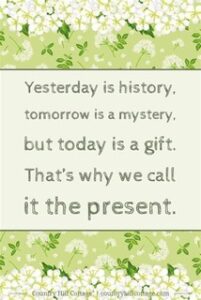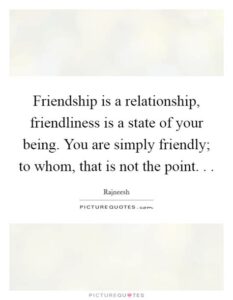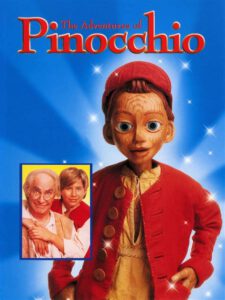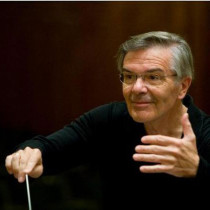 Robert J. Burdette stated, that in every week there are two days we should not worry about. Two days off our plate, two days less burden.
Robert J. Burdette stated, that in every week there are two days we should not worry about. Two days off our plate, two days less burden.
It’s not weekend.
The first day is Yesterday.
This is a day where stuff happened, where we used wrong words, where we did something less than perfect. Yesterday is the day, where we can think over and over what we should have done so much better! But still, it stays the same.
Yesterday is over.
Gone for ever, never to return. No amount of money will ever bring it back.
Reading this I thought to myself: How often did I think about something in the past over and over again? How often in one day do I in my head live in memories?
It happens quite often. And when we get real attentive, we notice a considerable time in the day, where we are absent. Lost in Yesterday.
It is truly a waste of time and mental bandwidth for Yesterday is over.
Reflecting consciously on what happened and learning from it is healthy.
But then it’s time to move on. Going to the past over and over is unnecessary – and sometimes it truly steals our lifeforce.
The second day in the week Burdette talks about, you guessed it, is Tomorrow.
We all tend to have large expectations and at the same time fears of what might happen or that we fail. We could end up performing poorly and not hitting the mark of what is expected from us. So we fear tomorrow for so much could go wrong once it arrives.
Artists and musicians are in that group that can relate the most I think.
We all want to really take people on a journey with our art, enchant and inspire them.
We want to fulfill expectations and even surpass them.
And sometimes we do just that. Other times we struggle with personal things, with health or with other people or negative circumstances.
Thinking of Tomorrow makes very vulnerable.
A person who does that excessively could muster up so much fear that they don’t even want to leave the house.
So worrying about tomorrow truly is not an option.
It steals focus and energy that can be used for good.
This leaves only one day of the week to keep our focus on. It is Today.
Anyone can fight the battles of just one day. It is only when you and I add the burdens of those two awful eternities – Yesterday and Tomorrow – that we break down.
Burdette sais:“It is not the experience of Today that drives men mad. It is remorse or bitterness for something that happened Yesterday and the dread of what will happen Tomorrow.”
What a wise advice! Let’s take it to heart!
All the best and so much love to you,
Anselma
p.s. Did you know? To ensure a comfortable use of our music, we allow free and unrestricted performing rights, no fees to pay, no nothing and we do not belong to any artists’ association on purpose.
The Anselma Music composers are happy to serve you with their music (compositions and arrangements) in your teaching and performing.
We kindly ask you to buy our original music books and to not make xerox copies of our music. This helps us tremendously to keep doing this work. Many thanks!
 Happiness seems to be like a wild animal. We look for it in the jungle of life, the journey is quite an adventure, we come to see strange and unexpected places.
Happiness seems to be like a wild animal. We look for it in the jungle of life, the journey is quite an adventure, we come to see strange and unexpected places. Thomas Alva Edison was working on the invention of the light bulb for quite some time. One day, after creating a new prototype he called his young assistant to carry the light bulb to the lab for further testing.
Thomas Alva Edison was working on the invention of the light bulb for quite some time. One day, after creating a new prototype he called his young assistant to carry the light bulb to the lab for further testing. Somewhere in the Orient a king had a special military department. This brigade contained an army of elephants. When the leading elephant grew too old to go into combat, they let him free to live on his own in the jungle.
Somewhere in the Orient a king had a special military department. This brigade contained an army of elephants. When the leading elephant grew too old to go into combat, they let him free to live on his own in the jungle. The other day I noticed, there are two ways of saying thank you.
The other day I noticed, there are two ways of saying thank you. A professor walked into the class and gave his students a test. The test was a blank page with one little black spot in the middle.
A professor walked into the class and gave his students a test. The test was a blank page with one little black spot in the middle. Dale Carnegie told the story that dogs have mastered one great skill: The art of making friends.
Dale Carnegie told the story that dogs have mastered one great skill: The art of making friends. If you are anything like me, you are interested in a substantial amount of things.
If you are anything like me, you are interested in a substantial amount of things. One of the most interesting stories that I have ever read is the original Adventures of Pinocchio by Carlo Collodi from 1881 based on a folk tale from Tuscany, Italy. It’s deepness and meaning can easily be overlooked and is not part of the Disney version, so it keeps to be mostly unknown.
One of the most interesting stories that I have ever read is the original Adventures of Pinocchio by Carlo Collodi from 1881 based on a folk tale from Tuscany, Italy. It’s deepness and meaning can easily be overlooked and is not part of the Disney version, so it keeps to be mostly unknown. Michael Endes “Neverending Story” is one of the five books I would take to the island. I already shared this passion with you right here in this column.
Michael Endes “Neverending Story” is one of the five books I would take to the island. I already shared this passion with you right here in this column.

